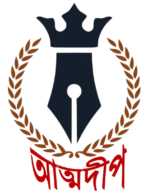Volume-I, Issue-VI, July 2025
Volume-I, Issue-VI, July, 2025 |
Received: 20.07.2025 | Accepted: 23.07.2025 | ||
Published Online: 31.07.2025 | Page No: 1534-1539 | ||
DOI: 10.69655/atmadeep.vol.1.issue.06W.161 | |||
বাংলায় খিলাফত-অসহযোগ আন্দোলনে ফুরফুরার পীর সূফী আবু বকরের(১৮৪৬-১৯৩৯) অবদান: একটি ঐতিহাসিক পর্যালোচনা ড.সেখ জাহাঙ্গীর হোসেন, সহকারী অধ্যাপক, ইতিহাস বিভাগ, সীতানন্দ কলেজ, পূর্ব মেদিনীপুর, পশ্চিমবঙ্গ, ভারতবর্ষ |
The Role of Pir Sufi Abu Bakar of Furfura (1846–1939) in the Khilafat-Non-Cooperation Movement in Bengal: A Historical Review Dr. Sk Jahangir Hossain, Asst. prof, Dept. of History, Sitananda College, Purba Medinipur, West Bengal, India | ||
ABSTRACT | ||
Abu Bakar was a prominent Islamic scholar, spiritual leader, and Muslim figure in Bengal during the time of India's struggle for independence. He wielded significant influence over the majority Muslim population of Bengal, and much of the Muslim community in Eastern India was deeply guided by his leadership. Over time, he emerged as a central figure among the Muslims, around whom a socio-religious movement gradually developed in Bengal. Initially, Abu Bakar devoted himself to religious reform, social reform, and educational revival. However, driven by necessity, he eventually became involved in political activities as well. He participated in various nationalist movements such as the Partition of Bengal, the Swadeshi Movement, the Boycott Movement, the Khilafat Movement, and the Non-Cooperation Movement. In all these, he acted as a popular spiritual leader of the Muslim community and encouraged their active participation. Recognizing his importance, even leaders like Mahatma Gandhi sought his support and visited him at the Tikatuli Mosque in Kolkata. Abu Bakar took various initiatives in these movements—some of which were partially successful, while others, despite his sincere efforts, did not achieve their intended outcomes. The reasons behind his participation in these movements were not always the same; they were influenced by anti-colonial sentiments, regional concerns, and religious motivations. Nevertheless, his actions were consistently guided by a deep sense of justice, humanism, idealism, and a global outlook. This essay attempts to interpret and analyze his life and contributions from multiple perspectives. | ||
Keyword:
|

